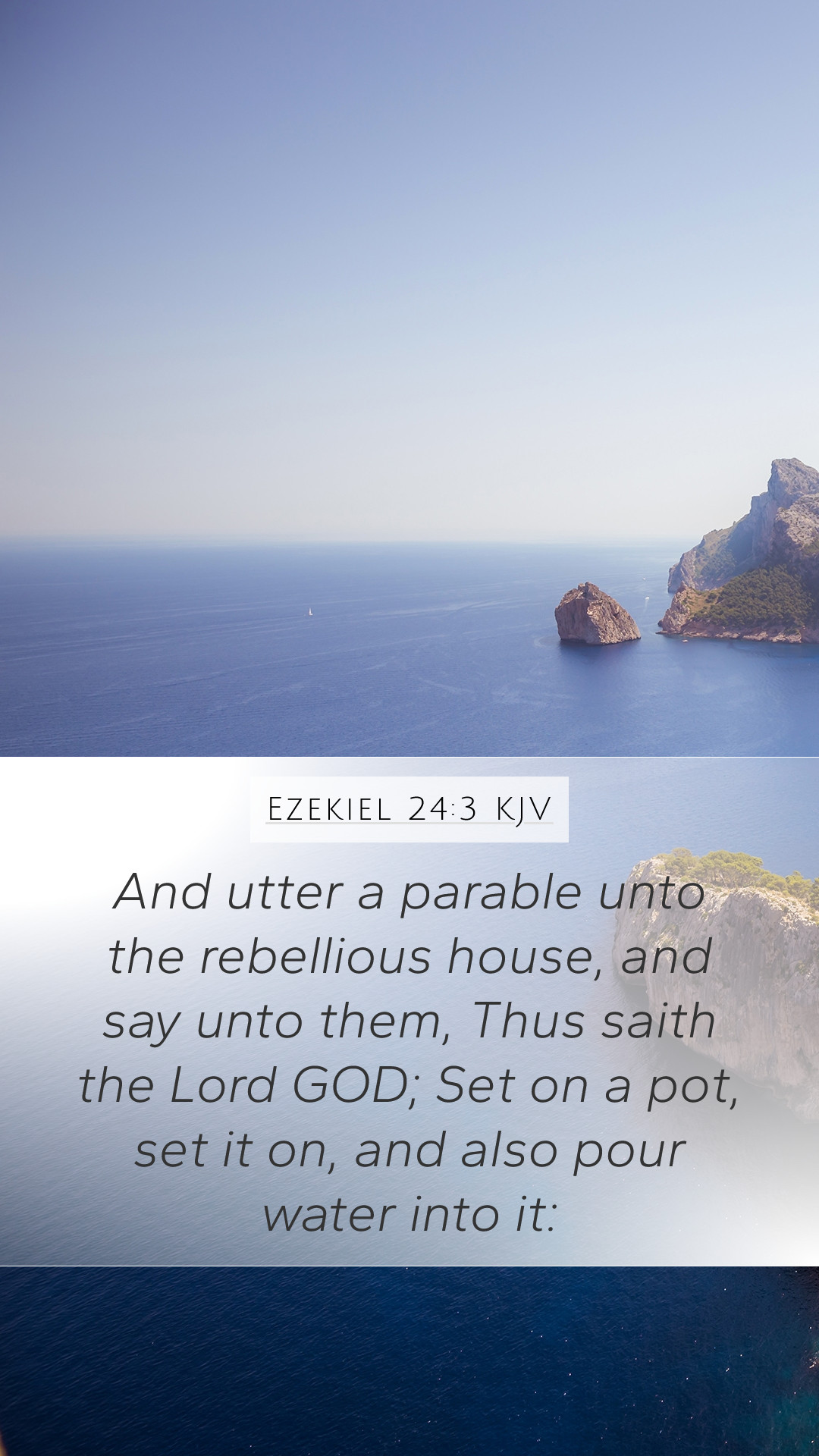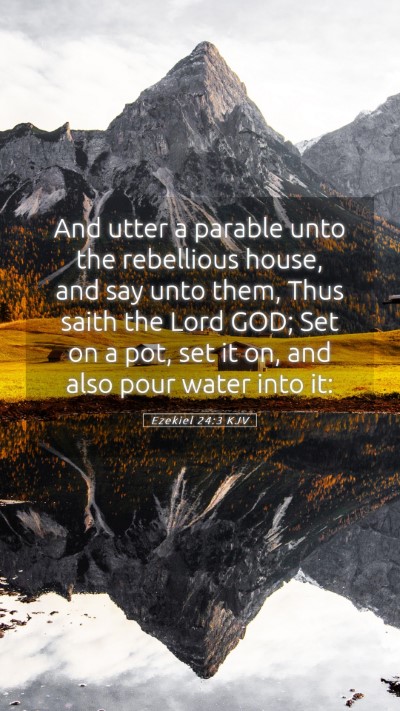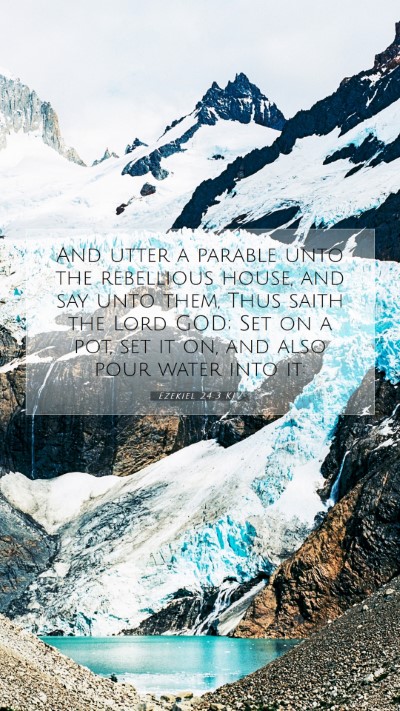Bible Verse Commentary: Ezekiel 24:3
Verse Text: "And utter a parable unto the rebellious house, and say unto them, Thus saith the Lord God; Set on a pot, set it on, and also pour water into it:" (Ezekiel 24:3 KJV)
Understanding Ezekiel 24:3
Ezekiel 24:3 introduces a profound and metaphorical message delivered by the prophet Ezekiel to the people of Israel, specifically aimed at a 'rebellious house.' This verse sets the stage for an upcoming prophetic illustration meant to convey God’s judgment and the consequences of the people's disobedience.
Context of the Verse
The significance of Ezekiel’s message can be further understood when we consider the broader historical and spiritual context of the time. The Israelites were in exile, facing the consequences of their actions while in Jerusalem. The 'rebellious house' symbolizes the stubbornness and unrepentant nature of the people, which warrants a divine response.
Interpretations from Public Domain Commentaries
-
Matthew Henry's Commentary:
Henry emphasizes that the phrase 'utter a parable' signifies a teaching method that employs imagery to convey deeper truths. The pot is a metaphor for God's impending judgment, suggesting that just as a pot holds contents, God's wrath would be poured out upon the people due to their persistent rebellion.
-
Albert Barnes' Notes:
Barnes points out that the pot symbolizes the impending siege and suffering that the people would endure. The act of pouring water into the pot parallelizes the gathering of the ills and sins that have accumulated among the people, leading to a boiling point where judgment cannot be avoided.
-
Adam Clarke's Commentary:
Clarke elaborates on the imagery in this verse, suggesting that the pot represents Jerusalem’s inhabitants, who should expect to face the consequences of their actions. He notes that the water represents the trials or hardships which would soon envelop them as a sign of divine disfavor.
Symbolism in the Verse
The use of a pot and water in Ezekiel 24:3 carries multiple layers of symbolism that can be unpacked:
- Judgment and Consequence: The pot can be seen as representative of judgment, with the water symbolizing the trials that the rebellious house would face as a result of their actions.
- Call to Attention: The parable serves as a reminder for the people to recognize their situation and consider their ways before judgment is fully enacted.
- God's Sovereignty: God commands Ezekiel to deliver this message, illustrating His authority and the certainty of the prophecy regarding the fate of His people.
Application of the Verse
For modern readers and believers, Ezekiel 24:3 serves as a potent reminder of the consequences of rebellion against God. It encourages self-reflection and an evaluation of one's own life in relation to divine principles.
In Bible study groups or personal reflections, this verse can foster discussions on:
- The importance of obedience to God’s commandments.
- The nature of God’s judgment and mercy.
- How parables can illustrate difficult truths.
Cross References
This verse can be related to the following scripture references:
- Ezekiel 13:10 - False Prophets and Judgment
- Jeremiah 7:19 - The Consequences of Rebellion
- Lamentations 3:33 - The Nature of God's Judgment
Conclusion
Ezekiel 24:3, through its rich metaphorical language, invites readers to delve deeper into the meaning of Scripture and to consider their own relationship with God. The insights drawn from the commentaries highlight the relevance of biblical teachings in understanding divine judgment and the call for repentance from a life of rebellion. Engaging with this verse, along with its historical and spiritual context, can enrich the Bible study experience, offering deeper insights into God's character and His dealings with humanity.


